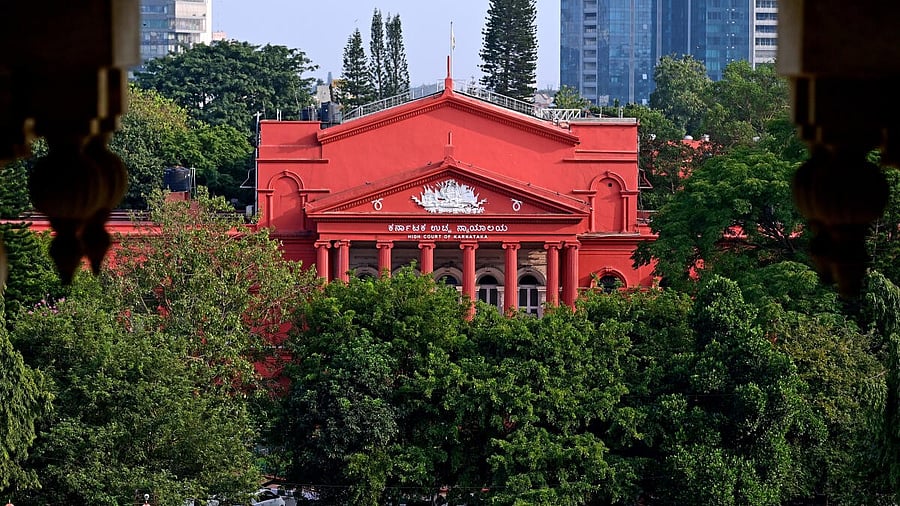
The Karnataka High Court
Credit: DH Photo
Bengaluru: The Karnataka High Court has refused to quash proceedings on charges of cheating and forgery against a high court employee, his wife and two others. Justice M Nagaprasanna said that investigation is necessary in the case at hand as the complaint narrates vivid details of the transaction and prima facie projects wrong-doing.
The complainant Y Sandhya’s family got acquainted with the family of N Venkatesh, the high court employee, his wife Dakshatini, son Sachin Suhas, a civil engineer and daughter-in-law Pragna, all residents of Bengaluru. The acquaintance led to financial transactions between the two families. In September 2021, the complainant took a loan against her property in Jayanagar and transferred it to Venkatesh to clear his loan. In October 2021, Venkatesh took the complainant, her husband and their son to Jayanagar sub-registrar office saying that he would purchase her Jayanagar house for Rs 4.5 crore. She filed the complaint, when Venkatesh and others failed to make the payment even after the registration.
The complainant alleged that Venkatesh had lured her into selling the property on him being a court official. The complainant said she now neither has property nor the money, as the registration documents are allegedly forged. On the other hand, challenging this proceeding, the petitioner accused argued that the content in the complaint is purely civil in nature and that a criminal law is set into motion only to arm-twist them in getting a higher value for the property.
Justice M Nagaprasanna noted that the complaint in the case at hand, narrates vivid details of the transaction and prima facie projects wrong doing and therefore, investigation in the least, is necessary.
“The submission of the learned counsel for the petitioners that a civil transaction is given a colour of crime would sound acceptance in its first blush, but on a deeper delving into the complaint, it is prima facie indicative of the fact that the complainant has been hoodwinked. This would require an investigation in the least. Since the investigation is stalled, I deem it appropriate to permit investigation into the case at hand, as it is no law that merely because an issue brought before the Court answering a petition under Section 482 of the CrPC projects the dispute being civil in nature, it is not that such crime, at the stage of investigation, should be obliterated,” the court said.